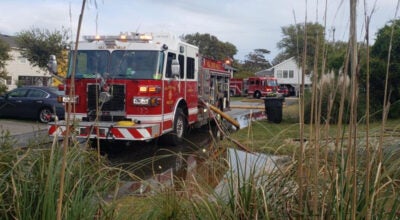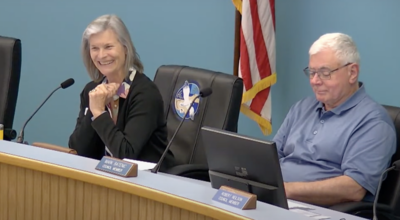Duck Town Council approves ordinances at mid-month meeting
Published 6:39 am Sunday, May 24, 2020
|
Getting your Trinity Audio player ready...
|
Duck Town Council approved an ordinance establishing temporary operating guidelines for business during a declared emergency during its May 20 mid-month meeting.
The move is in response to the extreme COVID-19 restrictions Governor Roy Cooper put in place that limited what businesses could and could not do.
At the request of Town Council, town attorneys Ben Gallop and Robert Hobbs drafted an ordinance authorizing the mayor to establish reasonable temporary business regulations consistent with an emergency declaration. Fast-tracking it through the May 13 Planning Board meeting, several provisions were recommended for restaurants and retail businesses to reopen under COVID-19 restrictions.
According to community development director Joe Heard, although the action was initiated as a result of current virus pandemic restrictions, the ordinance is not geared toward any one event. Heard said Ordinance 20-03 was instead drafted to cover a wide range of events and allow the town to move quickly in addressing the need for local businesses to operate during an emergency declaration.
“We already have ordinances that cover emergency proclamations,” explained town manager Christopher Layton. “But those rules do not get into the details of what is permissible during an emergency.”
A second code change on the afternoon agenda dealt with a different type emergency.
After almost an hour of discussion, council approved a new hazard mitigation plan developed in response to new Federal Emergency Management Agency flood maps for Dare County.
Updated every five years, the plan sets out measures that can be taken to protect people and property from the effects of natural and human-caused hazard events, improve recovery efforts, help maintain eligibility for mitigation funding and disaster relief assistance from FEMA. The plan can also help improve Community Rating System scores that can lead to lower flood insurance rates.
Included in the plan, along with other development standards, is the adoption of a minimum building elevation of 10 feet even within X flood zones.
Although there were calls from the construction and real estate communities for a lower building elevation, Heard said the best way to prevent flood damage to a structure is to elevate it and that FEMA studies show that every dollar spent on flood prevention saves $7 in future FEMA payouts.
He went on to say a 2018 study shows that building one foot above the 100 year flood level added $90 million to new construction costs per year, but saves $550 million in damages.
The only change council made to the proposed ordinance was to remove a square foot percentage restriction on lateral additions and allow existing development standards to be the control on additions.
A third ordinance amending the definition of building height in flood zones.
The change as approved in Ordinance 20-02 measures the vertical distance of a structure from the tallest roofline of a building to the top of the slab at the approximate center of the structure, or to the average finished grade where no slab is present, with adjustments for when the regulatory flood protection elevation is higher than the average finished grade or is lower than the average finished grade in AE, AO, or X flood zones.
Public hearings for both 20-01 and 20-02 were held at council’s May 6 meeting, but a 24-hour period for additional public comments, which has now passed, was required.
The next Duck Town Council meeting is set for 7 p.m. on Wednesday, June 3.
READ ABOUT MORE NEWS AND EVENTS HERE.
RECENT HEADLINES:




